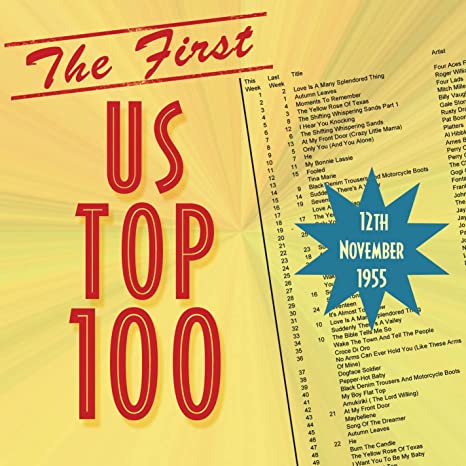PHOTO CREDIT: amazon.com
This week marks the 67th anniversary of the introduction of the Billboard Hot 100 chart. On Nov. 12, 1955, Billboard released their first edition of the Hot 100, with “Love Is A Many-Splendored Thing,” from the soundtrack for the film of the same name, by the Four Aces topping the chart.
On the charts 54 years ago in 1968, Jimi Hendrix’s second album, Electric Ladyland, reached #1, his first and only album to do so before he tragically passed away in 1970. Ladyland is especially known today for its cover of Bob Dylan’s “All Along The Watchtower” and for “Voodoo Child (Slight Return).”
Eleven years later, rap was beginning to emerge into the mainstream, with Sugarhill Gang’s “Rapper’s Delight” becoming the first song widely described as rap to enter the Hot 100 at #84, eventually reaching as high as #36. While not as tough or gritty a sound as some future artists would find success with, the song introduced hip-hop to mainstream audiences, allowing the genre to flourish in the future, including this week in 2002, when Eminem topped both the Hot 100 with his hit, “Lose Yourself,” and the movie charts with his drama, 8 Mile.
While 1979 marked the beginning of one genre, six years later would mark one of the last successes in the long career of a band that was the cornerstone of another. The psychedelic rock band Jefferson Airplane, now performing as Starship, with only some of the original members, released “We Built This City,” which would top the Hot 100. The song, sounding nothing like their original sound, has made many lists calling it one of, if not the worst, song of the eighties.
Historically, this week has been one of prominence for Taylor Swift. On Nov. 11, 2008, Swift released her sophomore album, Fearless. Fearless includes some of Swift’s most well-known songs, including “Love Story” and “You Belong With Me.” Her following album would make history for Swift almost exactly two years later, when she had 11 songs on the Hot 100, the most ever concurrently for a female artist until Beyonce released her album, Lemonade. This record has since been overtaken again by Swift, whose album, Midnights, landed all 20 songs in the top half of the Hot 100 charts. On Nov. 10, 2017, Swift released Reputation, an album that drastically changed Swift’s sound. The album received positive reviews at the time of release, and many retrospective reviews rate it higher still than its scores at the time of release.
This week has also been historically relevant to films produced by musicians. While the music video format was still incredibly new, the Beatles produced feature-length films for many of their songs. On Nov. 13, 1968, the Beatles screened their film “Yellow Submarine” for the first time in New York. This was not the first film by the Beatles, nor were they the first musicians to star in films. Twelve years earlier, on Nov 15, 1956, Elvis’s film debut, “Love Me Tender,” was released.
This week in music video history, Queen recorded the video for their magnum opus, “Bohemian Rhapsody.” They created and filmed the entire video over the course of four hours on Nov. 10, 1975. While it is considered great by many, it is not even the most historic music video produced this week in history. On Nov. 14, 1983, Michael Jackson held a private screening at Crest Theatre in Los Angeles to present his newest video, the fifteen-minute short film “Thriller.”
While some of the highlights of the music video era happened this week, the era’s downfall also began this week in 2008, when MTV ended its music video show, “Total Request Live.” The show was popular with teens, playing music and accompanying videos that were designed to be popular with a teenage audience.
Last year, the #freeBritney movement came to an end. In 2008, she was placed into a conservatorship unwillingly, leaving her trapped under her father’s control, unable to act financially or otherwise independently. Spears gained widespread support when the issues surrounding her conservatorship became more clear in 2020, provoking the movement online supporting her freedom. On Nov. 12, 2021, a judge ruled in her favor, officially freeing her from her father’s control.
Historically, this week of November was quite monumental for the music industry. Moments defining music history were incredibly prevalent and pushed the industry forwards immensely.




